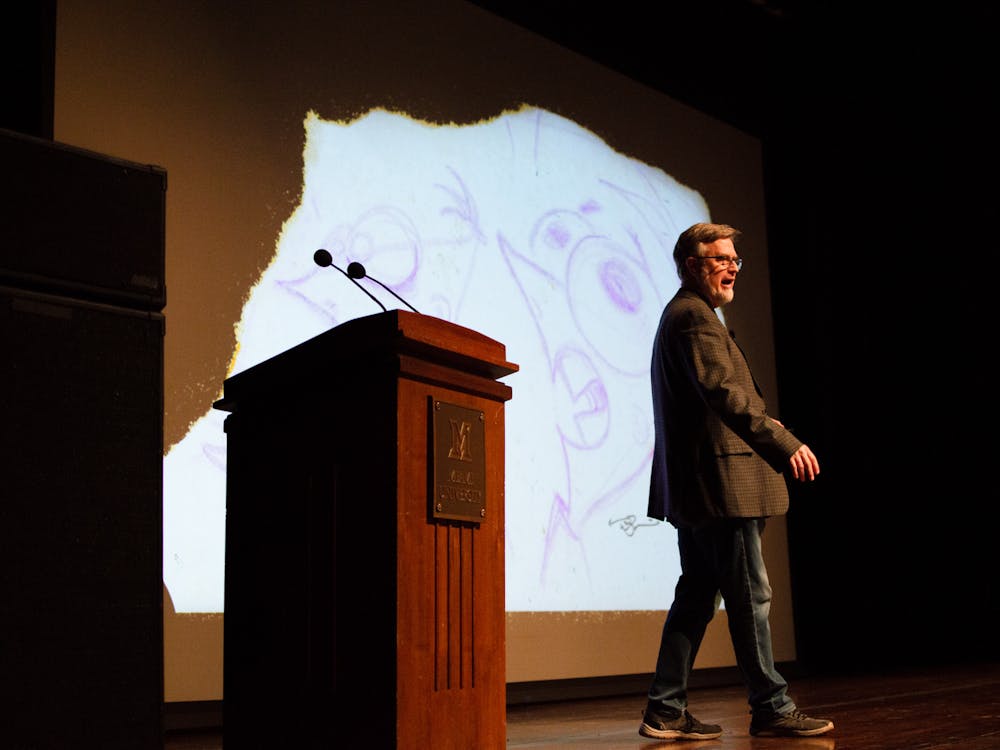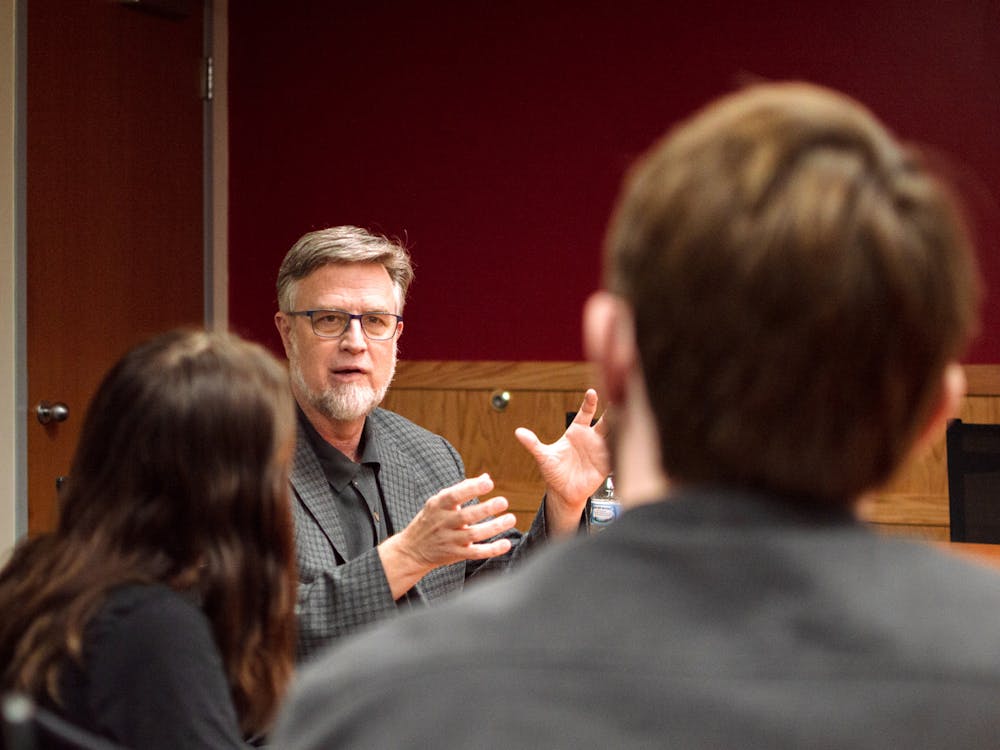By Michelle Gregg, For The Miami Student
Miami University is overflowing with research opportunities for undergraduate students in nearly every major. Though research is not required, many graduate schools look for students who have done research outside of the classroom.
Research is offered as anything from conventional science labs to reading for English or languages. This spring, Miami will host the annual Undergraduate Research Forum to showcase research performed on and off campus.
First-year Joshua Setters is working on creating a database of college football rosters to see from which states their recruited players come.
"I think my research is very important because it helps the recruiting process for teams that are struggling, like Miami," said Setters. "I need the experience for college and several of my career options."
Richard Page, a professor in the Department of Chemistry and Biochemistry, works hands-on with undergraduate research with many students each year.
"It is the perfect opportunity to test if you like lab research and could see yourself doing it for years down the road," Page said. "It is not just traditional coursework."
Page said research is important for students because it provides many of the necessary skills that will be required in their future occupations. While some careers specifically involve performing research, most simply require employees to use the valuable skills that can be gained from research such as processing data without having a professor or textbook.
Page, along with other professors in similar departments, have received funding from the National Institute of Health, the National Science Foundation and the Departments of Energy and Defense. These big-name groups can provide students with beneficial connections down the road and even an occasional job offer.
In regards to becoming involved, Page suggests students find what they enjoy about their classes, look for posters around their buildings, and ask lots of questions in order to learn how to become more involved.
"We love answering questions and talking about research," Page said.
The best characteristic for students to have in order to be successful in undergraduate research is to find something they are passionate about, Page said.
Enjoy what you're reading?
Signup for our newsletter
"They should be curious and creative," Page said. "Look at a problem and want to find an answer."
Martha Weber, the coordinator of undergraduate research, works in the Office of Research for Undergraduates (ORU), which is located in King Library. The ORU was founded about two-and-a-half years ago and helps students with questions or concerns about undergraduate research. She spoke about how personalized Miami research is for students.
"It depends on where the student is in their journey toward becoming the person who wants to be in charge of what they're learning about," Weber said. "Learning to love their research projects and seeing the process gives students the encouragement to say, 'I might do this outside of class.'"
Weber said the most interesting projects at Miami are those that involve collaboration across the majors. Even though students come in without the necessary skills for some research, they can still pursue or appreciate these things they cannot understand quite yet.
Another important aspect of research Weber focused on was the idea of how research impacts the future of our society and environment. Much of the research done in labs today is helping to mold teaching and research together.
"Research is at the core of everything we do," Weber said. "Faculty is always researching and undergrad students show up with new ideas that the faculty becomes excited to try with them."
Weber also mentioned that many students don't know about the summer research programs and how much funding is available for them. She encouraged students to look into the many opportunities in various disciplines offered over the summer term.
To Page, research is vital to everyone.
"Research is not knowing an answer, but finding a solution," Page said.




